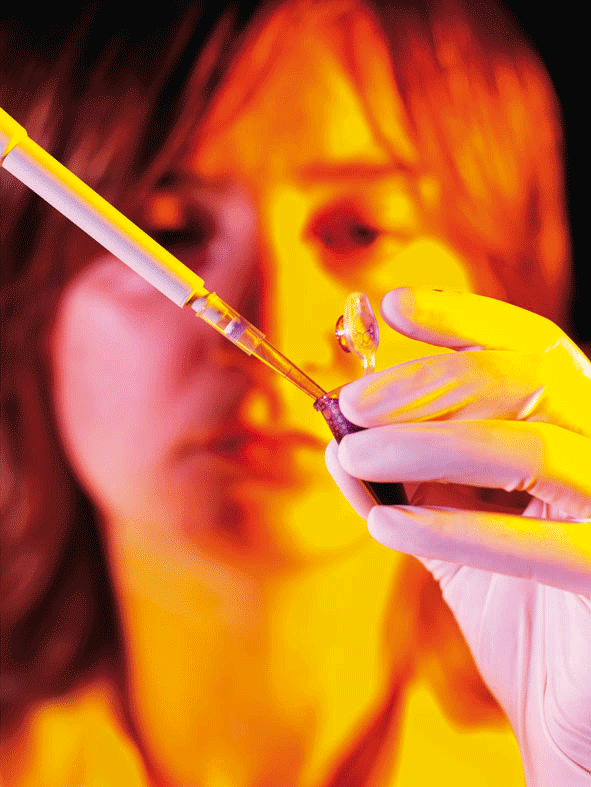Minor Programs: Molecular Biology and Genetics
Molecular biology is an area of basic science that aims to unravel structures and the behavior of living organisms by focusing on their molecular constitution in conjunction with genetics, in which  the structure, information content, and reproduction of the genetic material is examined. A molecular biologist researches the molecular underpinnings of the replication, transcription, and translation of the genetic material by combining techniques and knowledge derived from genetics and biochemistry.
the structure, information content, and reproduction of the genetic material is examined. A molecular biologist researches the molecular underpinnings of the replication, transcription, and translation of the genetic material by combining techniques and knowledge derived from genetics and biochemistry.
Furthermore, the interaction of cellular and genetic components with biomolecules, complex chemicals associated within living organisms, and their relationship determines the cell fate that makes possible life on earth, which is studied at the intersection of molecular biology and genetics. The interface of biology and computer science in bioinformatics and computational biology has transformed molecular biology by enabling the quantitative analysis and processing of tremendous amounts of molecular biological information gathered in various disciplines. These developments have lead to the advent of genome projects, including mapping the human genome. Molecular biology and genetics drive discoveries and technologies that impact a wide range of disciplines, such as chemistry, physics, physiology, neuroscience, signal processing, and computer science and sectors including but not limited to health, pharmaceutics, agriculture, engineering, and law. Hence the molecular biology and genetic minor is very popular program across the globe. The graduates of such programs have pursued interdisciplinary careers in research and industry.
The curriculum in the undergraduate minor program in the Department of Molecular Biology and Genetics provides a foundation in basic areas with the following aspects: the structure and expression of genes, biochemistry of proteins, cell signaling, development, the basis of inherited diseases, molecular biology of cancer, biotechnology, genomics, and bioinformatics. Students are required to take four fundamental courses. Biology I and II provide essential knowledge about molecules of life, central dogma, DNA, RNA, proteins, organization of the cell, embryogenesis, and genetic diseases. These courses also provide an introduction to cell division and differentiation, molecular biology methods, recombinant DNA technology, and biotechnology, which help prepare students for advanced courses. The course Principles of Genetics covers Mendelian genetics, theory of inheritance, genetic mapping, and population genetics topics in general. Finally, Molecular Biology of the Cell investigates how molecular mechanisms, which are studied in the other courses, serve cells. These courses will supply the knowledge for the minor candidates who will choose two advanced courses offered from our department related to their specific interests. Additional advanced courses can be selected according to the students' specific future career needs.
Genome projects and fast large-scale genome sequence analysis techniques that flourished during the last two decades require interdisciplinary studies. For that reason we believe that young scholars from other disciplines also could contribute to the progress of molecular biology and genetics. The minor program in the Department of Molecular Biology and Genetics is an excellent opportunity for Bilkent students to become familiar and broaden their knowledge in this field for an eventual career on biotechnology, genomics, neuroscience, or bioinformatics.